Forests act as giant buffers against extreme temperature swings, cooling on the hottest days and warming on the coolest ones.
Cooling in summer and hot climates:
In hot climates and in hot summers of temperate climates, forests release huge volumes of water through evapotranspiration. This release of water into the atmosphere has a huge cooling effect. Forests also reduce heat by directly capturing useful solar energy, and converting it into stored energy that is used later by plants and animals. The energy captured by photosynthesis is all energy that would either become heat or be reflected (some of which would later become heat) if it were not for the plants capturing it.
Tall forests also block out a great deal of heat from reaching the ground. The highest trees capture most of the sunlight, and the hottest air stays at the top of the forest and rises out, leaving the forest floor moderate in temperature.
Warmth in winter:
In areas with cold winters, forests also generate heat in the winter. Plants burn a substantial portion of their stored energy in the winter, to keep themselves alive, and the animals in the forest also burn up their own energy stores. All of this respiration generates heat.
Forests also increase heat capture by the sun on days when the ground is covered by snow.
An open field covered by snow reflects most of the sunlight that reaches it. But a forest captures most of this light--especially a boreal forest consisting of mostly evergreen trees. The conical shape of evergreens shunts off most of the snow onto the forest floor, leaving the treetops exposed. The dark color of the evergreen trees' needles captures solar radiation as heat, warming the landscape to a higher temperature than an open field would be in winter.


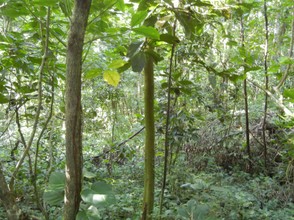
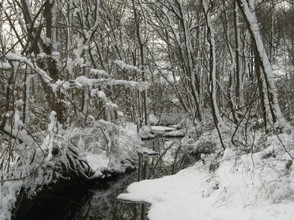
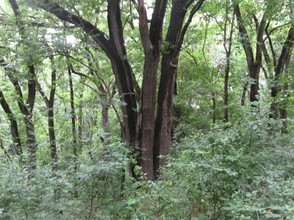
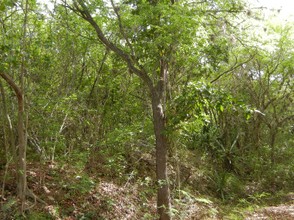



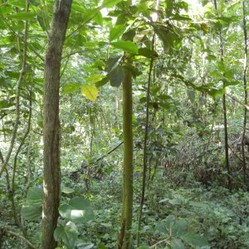

 The Shaming of Femininity and Elevation of Masculinityon 07/13/2017
The Shaming of Femininity and Elevation of Masculinityon 07/13/2017
 What is Genderqueer or Non-Binary Gender?on 10/16/2015
What is Genderqueer or Non-Binary Gender?on 10/16/2015
 Resources for Learning Spanish Free Onlineon 04/13/2016
Resources for Learning Spanish Free Onlineon 04/13/2016
 Ways Native Plants Can Help Control Invasive Plantson 05/26/2016
Ways Native Plants Can Help Control Invasive Plantson 05/26/2016


Comments
cazort, All of the benefits which you mention are significant. At different points in a year some of these benefits seem more obvious than others, depending on the human landscape in proximity to forested areas.
In the rural area in which I live, biodiversity flourishes but 8 miles down the road trees, including a wonderful old apple orchard, are being bulldozed for development, which will increase the traffic bottleneck which is already a problem there.
There are areas of the highway, a few hours away from me, where even trucks are troubled or overturned by powerful blasts of unfettered winds because there are an insufficiency of wooded areas to serve as windbreakers.
Thank you for highlighting these benefits.
Woods give shelter in winter. We had terrible snow storms in parts of the UK in March and some sheep have sought out woodland, trying in some cases to push down fences to find shelter in the woods. Maybe woodland should be part of all sheep farmers' defensive strategy.
That is a great point about pannage...thank you for bringing that up! I didn't know about that practice in the UK, but it makes a lot of sense. Another agricultural use that I've seen is that some farmers will have patches of woods adjacent to a pasture for cows or horses, and the animals will choose to spend some time resting in the woods during the hottest part of the day, especially in the warmer months.
I have also eaten wild fungi from forests! It takes some knowledge and skill to be sure of the ID and avoid poisonous ones, but in the cases where I can be sure of what I'm eating, they can be quite delicious.
Interesting article. In the UK hunting is not the main use of forest, as we have very little of it, and the best that you will probably shoot is a rabbit, though we are having problems with deer proliferation, which could be resolved by hunting. We also have wild boar, but they are not to be hunted by inexperienced hunters.
However, the article overlooked the traditonal English use for forest, which is pannage, which is still practised in the New Forest, southern England, by people with commoners' rights. This is the right to loose pigs into the forest to feed on acorns and beech nuts in Fall. It used to be the practice across much of England.
Foraging for hazel nuts used to be common across England until the grey squirrel was introduced. It ate them, but some people now are thinking that grey squirrels might be a tasy lunch. There are some forest fruits, like sloes, blackberry and elderberry, which grow in the lighter areas near woodland edge. I have had good wine from the latter two, though the sloe is not common near where I live. Hawthorn leaves were eaten in spring in the past.
Some forest fungi are edible, but you must be careful and know what to pick and what not to.
Thanks! And that's a funny coincidence: I actually have roots in the Ozarks! My mom's side of the family is from Arkansas, and I still have a lot of family who live nearby and get together in that region pretty often. I've spent a fair amount of time in the woods in that region as well, near the Buffalo River and in a few other areas.
I agree with your point that the value of biodiversity is immense and hard to grasp. There are so many things we have yet to discover, and sadly, many species of plants and animals will disappear before we have a chance to even try to understand potential benefits.
The rain forests are especially important when it comes to biodiversity.
I spent more than my share of time in the Ozark forests, when I was young.
Thank you! That's wonderful that you're able to have such green space in a big city. I'm actually quite excited about some of the things I see happening in Philadelphia. I've seen some of the industrial lands along the banks of the Schuylkill river reclaimed and made into natural areas with bike/pedestrian trails through them.
I also love picking wild berries. My favorite are black raspberries, which are abundant in Delaware, where I lived for 4 years. I definitely saved a lot of money from picking wild fruit. Here in the city, I've even been able to pick a substantial amount of fruit--Juneberries (a native plant planted as ornamental bushes) and Mulberries mostly (which grow well in cities), and I've found some blackberry bushes and a persimmon tree too.
This is a really interesting piece, Cazort. My home backs on to woodland (a very small forest) which is really appreciated particularly as I live in a big city. Fortunately, this little piece of paradise is protected and will, therefore, remain. When I was child we used to pick blackberries from this forest, my mother never had to buy any!
Forests are very much needed! Will man ever learn to stop inflicting damage on himself?
Yes! This is a major concern. Forests and other ecosystems contain many species of plants and fungi and animals and microorganisms, and especially the plants may have undiscovered uses for medicine, food, or other uses. If they go extinct, these potential uses will be lost forever. This provides yet another compelling reason to protect the biodiversity of the Earth's ecosystems.
Thank you!